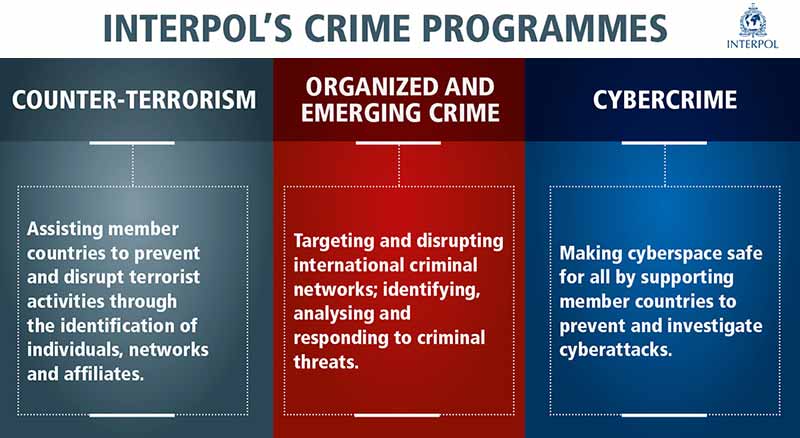- World
- Sep 05
Short Takes / Interpol general assembly
India has proposed to host the Interpol general assembly in New Delhi in 2022, as part of the 75th anniversary celebrations of the country’s independence.
The proposal was mooted by Union Home Minister Amit Shah to Interpol secretary general Jürgen Stock, when the latter called on him, according to an official statement.
The home minister also expressed India’s willingness to be a regional hub of the Interpol global academy by extending assistance as well as infrastructural support.
Background
The International Criminal Police Organisation (Interpol) is an inter-governmental organisation that has 194 member countries.
It began as the International Criminal Police Commission in 1923, and became the International Criminal Police Organisation in 1956.
India became a member country on October 15, 1949.
Interpol enables countries to share and access data on crimes and criminals and offer a range of technical and operational support.
The General Secretariat coordinates its day-to-day activities to fight a range of crimes. Run by the secretary general, it is staffed by both police and civilians and comprises a headquarters in Lyon and several satellite offices in different regions.
The current secretary general is Jürgen Stock of Germany, unanimously elected at the 83rd general assembly session in Monaco, in 2014.
In each country, an Interpol National Central Bureau (NCB) provides the central point of contact for the General Secretariat and other NCBs. An NCB is run by national police officials and usually sits in the government ministry responsible for policing.
It connects all countries via a communications system called I-24/7. Countries use this secure network to contact each other. It also allows them to access databases and services in real time, from both central and remote locations.
The General Secretariat provides a range of expertise and services to member countries. Interpol manages 17 police databases with information on crimes and criminals (from names and fingerprints to stolen passports), accessible in real time to countries.
It supports national efforts in combating crimes across three global areas - terrorism, cybercrime and organised crime.
General assembly
The general assembly is Interpol’s supreme governing body, comprising representatives from each of its member countries. It meets once a year and each session lasts around four days.
Each member country may be represented by one or several delegates who are typically chiefs of police and senior ministry officials.
Its purpose is to ensure that Interpol’s activities correspond to the needs of our member countries. It does this by determining the principles and measures for the organisation to reach its objectives, and by reviewing and approving the programme of activities and financial policy for the coming year.
On the agenda each year are also the major crime trends and security threats facing the world.
The general assembly takes decisions in the form of resolutions. Each member country represented has one vote. The decision-making process is made by either a simple or two-thirds majority, depending on the subject matter.
As the largest global gathering of senior law enforcement officials, the general assembly also provides an important opportunity for countries to network and share experiences.
Chile will host the general assembly this year.



